
Are multi-signature transaction fees really that expensive?
When an amount of Bitcoin changes location (wallet address) this is considered a transaction and there is always a fee associated with registering this transaction to the blockchain.
Think of these fees as payments made to authenticate transactions and keep the blockchain operational.
A Bitcoin transaction fee is calculated using these two main factors:
- Market demand – Just like with everything, if demand is high then the fees will also be higher.
- Transaction size – With a limited amount of space in every block, fees are proportional to the size of the transaction.
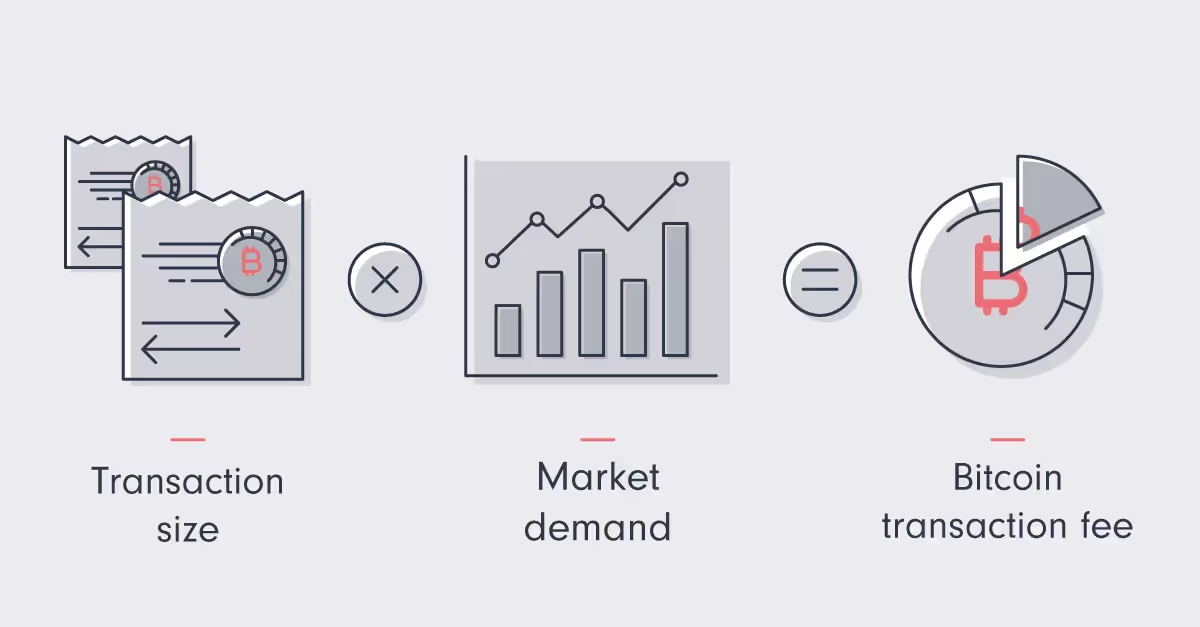
Calculating transaction size
While market demand is somewhat straightforward, transaction size is where you will see the main difference in fees between single-signature and multi-signature transactions.
Think of every transaction like a parcel that you would send at the post office.
To make sure that your transaction gets approved, your parcel should include all information related to that transaction.
We will say that every piece of information is a piece of 1 gram paper.
So, the more information (data) that is included in your parcel (transaction), the heavier it is (the more data there is) and the more it will cost to send (transaction fees).
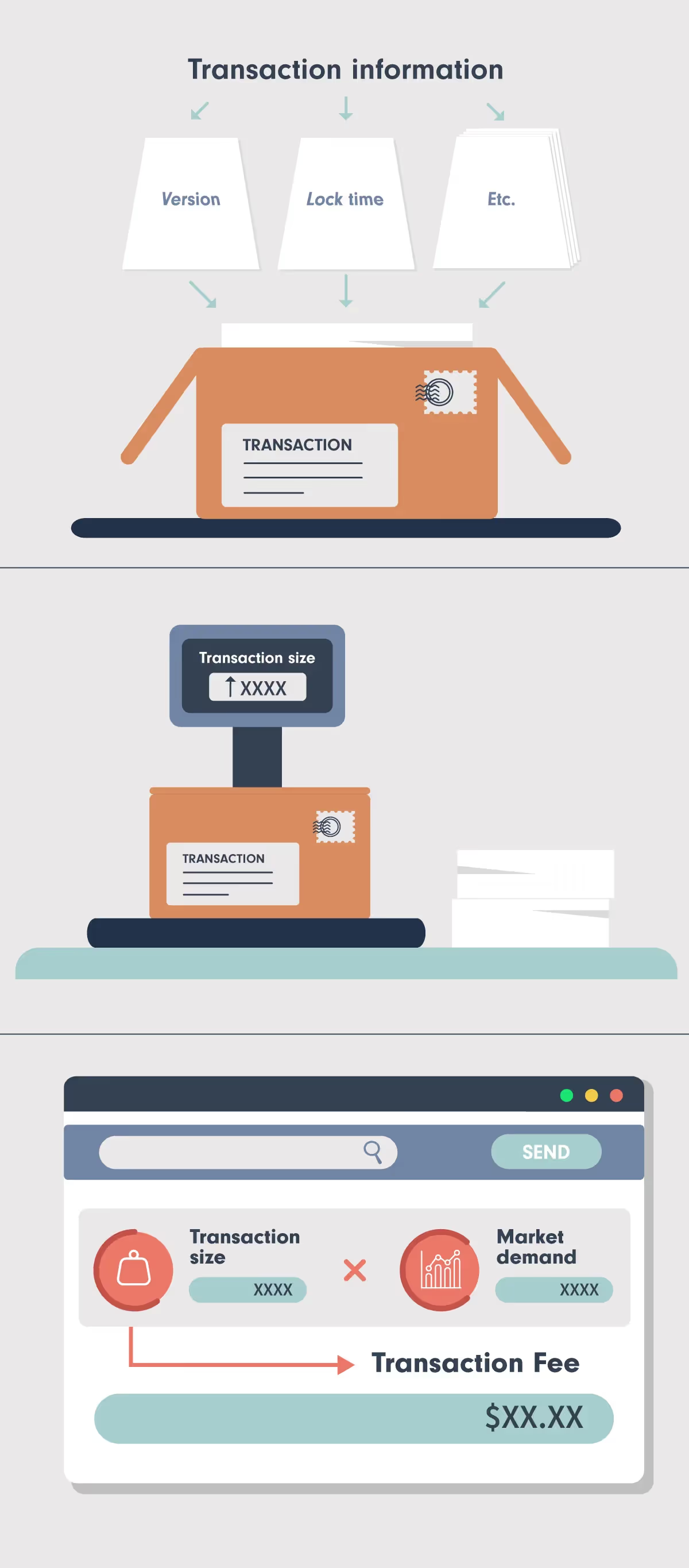
Single vs multi-signature transactions
A single signature transaction requires only one signature from the person sending the Bitcoin and this signature authorizes that the transaction is ready to be sent to the blockchain for authentication.
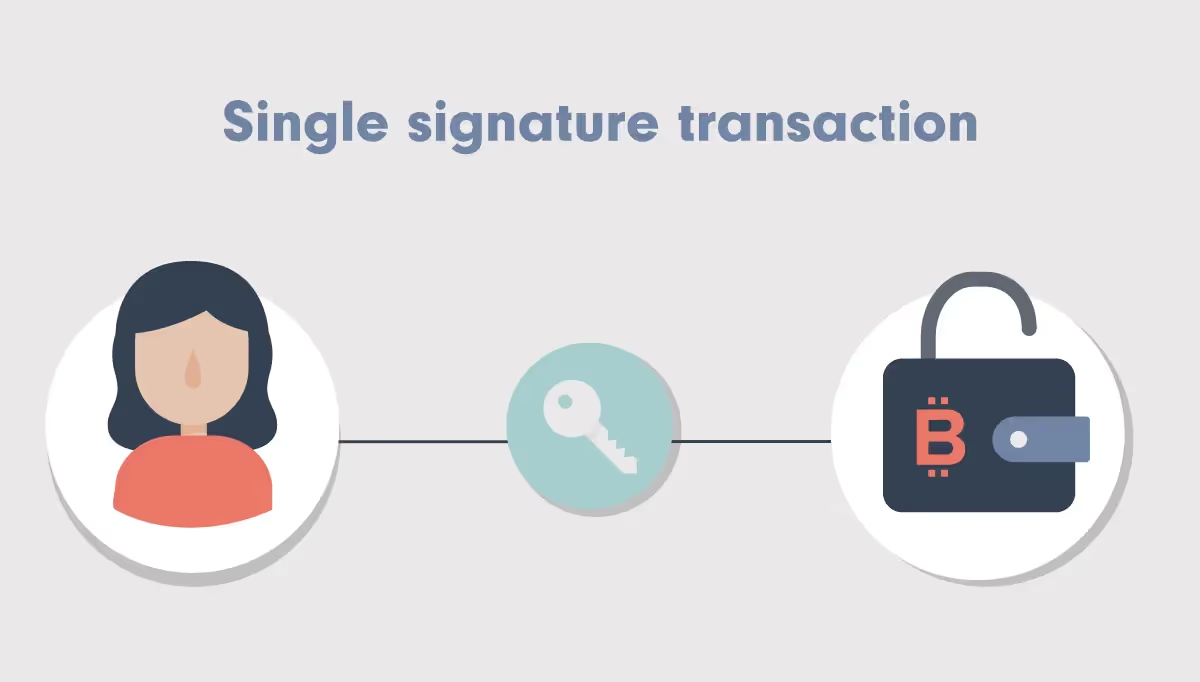
Whereas a multi-signature transaction requires that two or more people (signatures) authorize a transaction prior to being sent for authentication onto the blockchain.
For example:
A multi-signature wallet may have 3 people (signatures) associated with the account, but only require 2 of those 3 people to authorize a transaction.
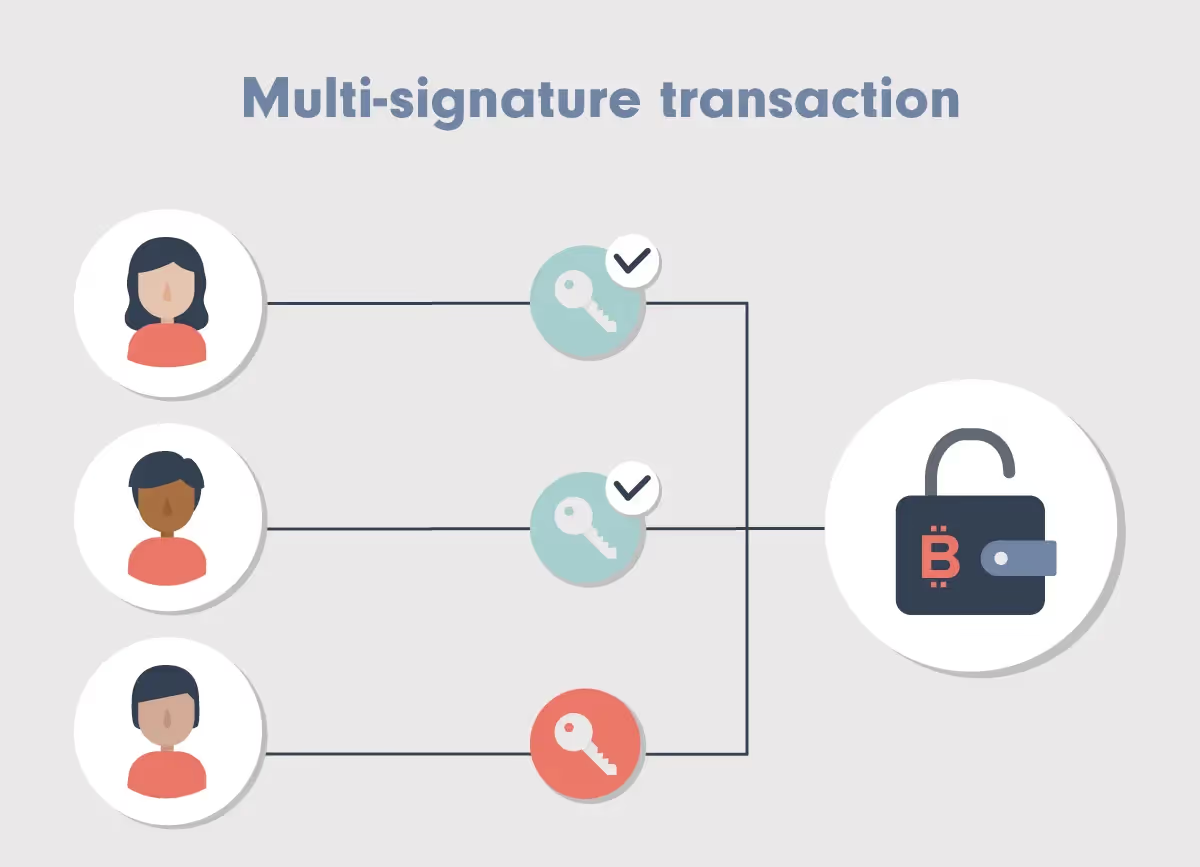
Back to our parcel analogy, a multi-signature transaction has more ‘information’ associated with it, which means that its fees will be more expensive.
Structure of a Bitcoin transaction
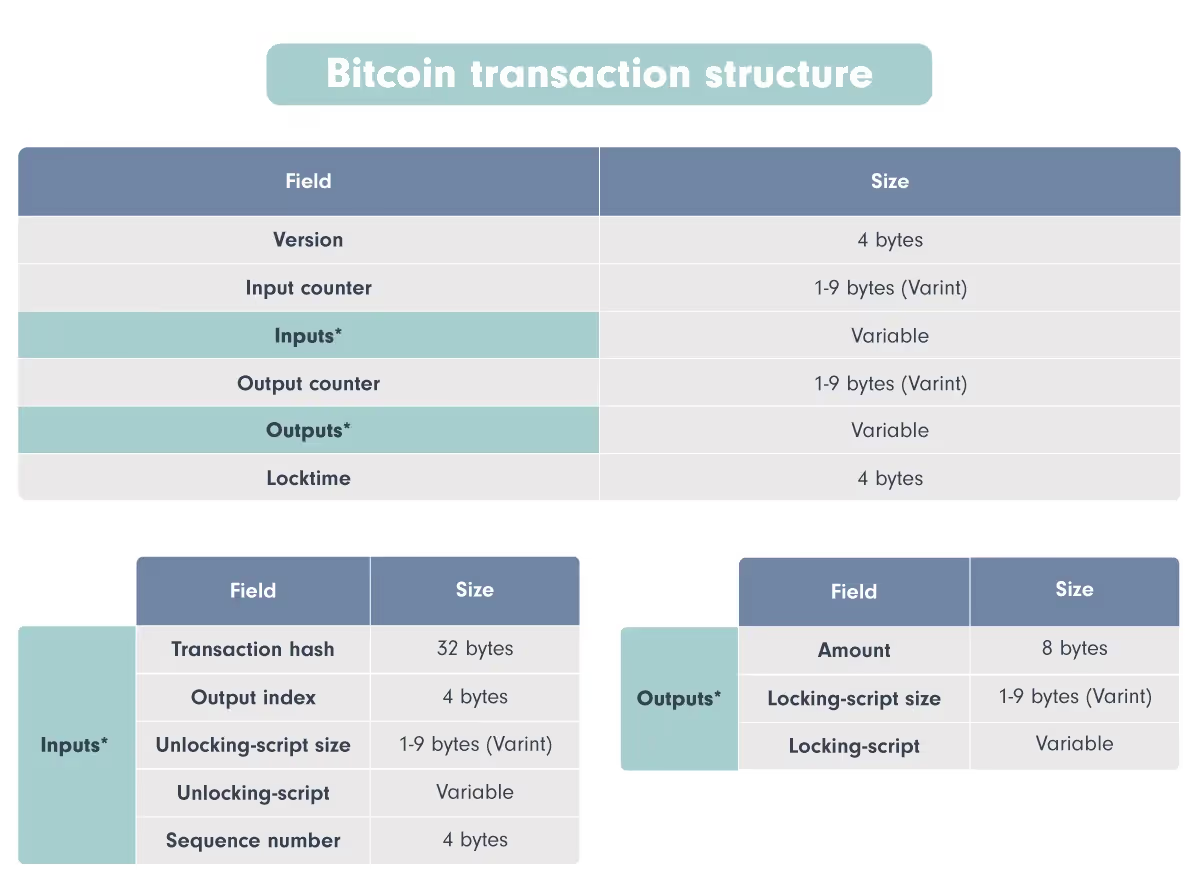
Source: Mastering Bitcoin – Andreas Antonopoulos 2014
There are many variables that go into calculating the size of a Bitcoin transaction. All this information is required and the associated bytes (data) is part of what influences the transaction fee.
Since a multi-signature transaction requires more information (bytes), we know that the transaction fee will cost more.
We took a deep dive into these numbers to see exactly how much more a multi-signature transaction is compared to its single-signature counterpart.
Transaction fee comparative analysis
Since most multi-signature transactions today are done using the Pay-to-Script-Hash, we will be using this pattern for our comparison against single signature transactions.


For both formulas the key variable that will influence size is the number of keys involved in the transaction.

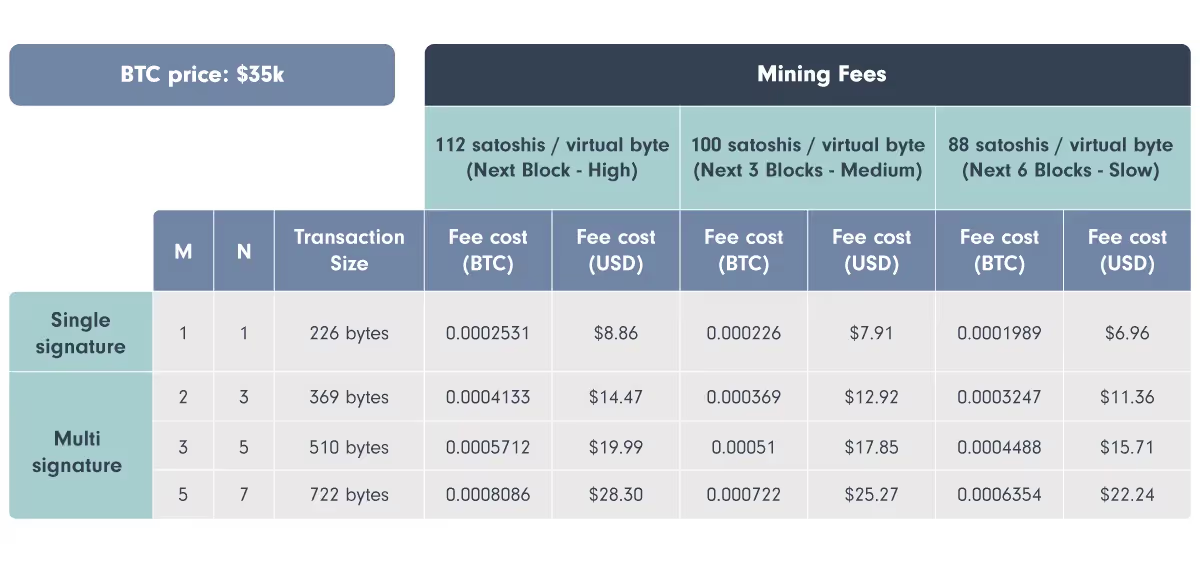
As we can see in this table, while transaction size influences the fee, from an enterprise perspective, the key variable to consider is the amount of Bitcoin being sent.
For an individual sending a small amount like $100, it’s clear that the difference between single signature and multi-signature fees will have a noticeable impact, as the fee could be over 25% of the value being sent.
However, for enterprise businesses who are moving large sums of money like $100k, the $20 difference between a single-signature and a multi-signature transaction fee is nominal and shouldn’t be a deterrent to multi-signature technology.
What about Taproot?
Taproot is a recent upgrade to Bitcoin and introduces new features to the network.
While the upgrade includes three Bitcoin improvement proposals (BIP), what is interesting related to multi-signature fees are Schnorr Signatures.
This feature allows the signatures of all multi-signature participants to be recorded as one signature on the blockchain. This means that regardless of the number of participants, the transaction size will be smaller and therefore the transaction fees will be cheaper.
Fortris handles digital asset treasury operations for enterprise business.
Want to learn more? Book a demo today.
